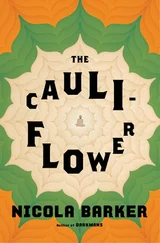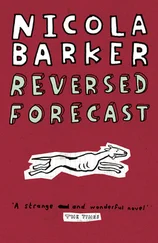Davy eyed Leonard side-on. His gut, his pate, his white stubble.
‘I’ve been going in this place for years. I know all the girls who ever worked in there.’
Davy felt little inclination to have any kind of conversation with Leonard, least of all a conversation of a personal nature. He said, ‘I don’t think there’s much point in discussing it.’
‘OK,’ Leonard said, ‘I’ll tell you one thing, though.’
‘What?’
‘Women do not have logical minds. You hear me? No matter what they do, no matter how they try. That’s just the way it is. I mean, how many great thinkers do you know of that are women? Any?’
Davy shrugged. ‘I dunno.’
‘None.’ Leonard folded his arms across his chest. His expansive gut bulged out under the weight of them. He continued. ‘This girl hates men. Why? Because nature has cursed her and given her a fanny. Because men can think in ways that she can only dream of. Ways that she can’t. So she hates men.’ He stabbed at Davy’s arm with his finger. ‘So we must all suffer.’ He paused and then added, ‘I see it every day.’
‘How’s that?’ Davy was interested, in spite of himself. But already Leonard’s mind was elsewhere.
‘Here is the picture I have.’ He drew a square, mid-air, with his hand. ‘Here is my information. She buys a paper every day. Does she read it? No. Only turns to the back and looks at the sports.’
He swivelled around and peered in through the window of the café, towards Jodi, who, true to form, was still leaning against the counter and staring at her paper. Davy stared too. He noticed that she was reading a big paper, not a tabloid.
‘She has a large family. Four brothers. Hungarian. All older.’
‘What’s she reading?’
Leonard rolled back on his heels.
‘Chess.’
‘In the paper? I’ve never seen chess in the paper.’ As he spoke, however, he had a vague recollection of having seen a black and white chess board on the back pages of proper papers.
Leonard said, ‘See how she does her hair? See how her uniform is? All neat. Clean shoes?’
Like a bloody Fascist, Davy thought, feeling ashamed of the impulse in himself that had caused him to find her attractive.
‘Everything is as it should be.’
Davy interrupted. ‘She can’t hear us out here, can she?’
Leonard shook his head. ‘Wouldn’t notice if I took out a gun and shot you. See her face.’
Davy turned and peered in through the window again. Jodi stood by the counter, as before, reading, but her face, he noticed, was white, pointed, tensed, focused, bloodless.
‘What’s wrong with her?’
‘Sex.’
‘What?’
Davy laughed sharply, with embarrassment. Leonard pummelled the palm of one hand with the fist of his other, a gesture that needed little interpretation.
‘Know what I mean? All those brothers. She wants to be like a man. All straight and neat and everything clear in her head. Silly bitch.’ He licked his lips before adding, ‘Ripe for the plucking.’
Davy noticed that Leonard’s fringe, originally white, had been stained a sickly yellow from nicotine. Also a small funnel on his upper and lower lips, on the right-hand side of his mouth where he characteristically held his cigarette. This man, he thought, is a bloody animal.
Jodi was still leaning against the counter. She was memorizing several of the moves in the Short/Timman match. Originally she had believed that chess was a game that invited skill, wit, spontaneity. But now she knew that the only way to contend at a serious level was to learn, to revise, to memorize, to plan and to structure. Prepare as if for war.
Jodi had three brothers. Her parents were Romanian. All had played chess from a very young age. Her father was an exceptional player. None of the other brothers had ever beaten him. Only she, Jodi, had managed this once, aged thirteen. It had been the best and the worst day of her life.
Her father had said, ‘Do you know how you beat me, Jodi?’
‘How?’ She smiled up at him, exultant.
‘Puberty. You have turned into a woman under my very nose but I didn’t notice. When you moved your knight and left your Queen unprotected I thought: she’s lost it, she’s not concentrating. I let my guard down. I didn’t see the move for what it was: sensuous, ridiculous, gregarious. Very, very feminine.’
Jodi had stared at him, unsure how to react. She thought, is this good or is this bad? She still asked herself this question: Good or bad?
Leonard nudged Davy in the ribs with his elbow. ‘Once I listened about how she went to a pub to play chess with this famous English champion. Crazy man, long hair, glasses. I forget his name. Anyway, all the tables in the pub had boards. He played five games all at once, ten games, just walking between tables. She played four moves. . one, two, three. . and he beats her. Just like that. Easy!’
‘So what happened?’
Leonard laughed and shook his head. ‘She says, “I’ll learn every move it’s possible to make. I’ll read every book. I’ll see a whole game in my head before it’s even played.” Now she says she can play a game without even looking at the board.’
Davy felt suddenly ashamed. I asked her out, he thought, and I didn’t know any of this. Imagine, all these things going on in her head and I couldn’t even have guessed at them. He stepped away from Leonard and moved back towards the doorway of the café. He saw Jodi through the glass in the door. He felt a sudden, incredible, horrifying desire to consume her entirely, to take her and to make all those strange, abstract, alien parts of herself his own. He wanted to drink her down in one, like she was the liquid in a can of fizzy drink that could quench his thirst and bite into the back of his throat all in a single, thorough, rushing gulpful.
Jodi sensed a figure hovering around just outside the café, near the door, a blur beyond the edge of her paper. She had ten moves worked out in her head, one after the other. She had to keep them in. Order. Symmetry. Design.
Her own private moves were there, too, in the back of her mind.
I will never dance with a man.
I will never make love.
I will never marry.
I will never bear children.
She sighed as she put down her paper and glanced up towards the figure in the doorway. She sighed but she felt not the slightest twinge of regret.
And then she noticed that it was Davy standing in the doorway. Davy? Was that his name? And then she noticed that he had bright green eyes. It was her move.
Belinda was well acquainted with the fact that the tortoise was a protected species, but this information could hardly be expected to improve her opinion of these silent, shelled, sly, old creatures.
She had joined the circus at eighteen, when she was awarded an E grade in her history A Level and an F in physics. Six years ago. Now she travelled the length and breadth of the continent, performing her gymnastic feats. She could start off doing a back-bend and end up with her head sticking out from between her own thighs. People at the circus called her Bendy-Linda, and the single question that she was asked more than any other was: What is it like to perform cunnilingus on yourself ? To which she would usually reply, ‘Depends how long it’s been since I had a bath.’
Bendy-Linda also had chief responsibility for the performing parrot troupe: seven parrots which she dressed anthropomorphically and had taught to don and doff hats, hold up miniature papers, kiss each other — birdy, beaky kisses — and dance in time to specified tunes. They also talked. They said, ‘Hello there’, ‘Milk and no sugar’, ‘May I have the pleasure?’ and ‘Great weather we’re having.’ She believed that these few sentences and phrases offered the key to a perfect life. A parrot utopia.
Читать дальше
Конец ознакомительного отрывка
Купить книгу












